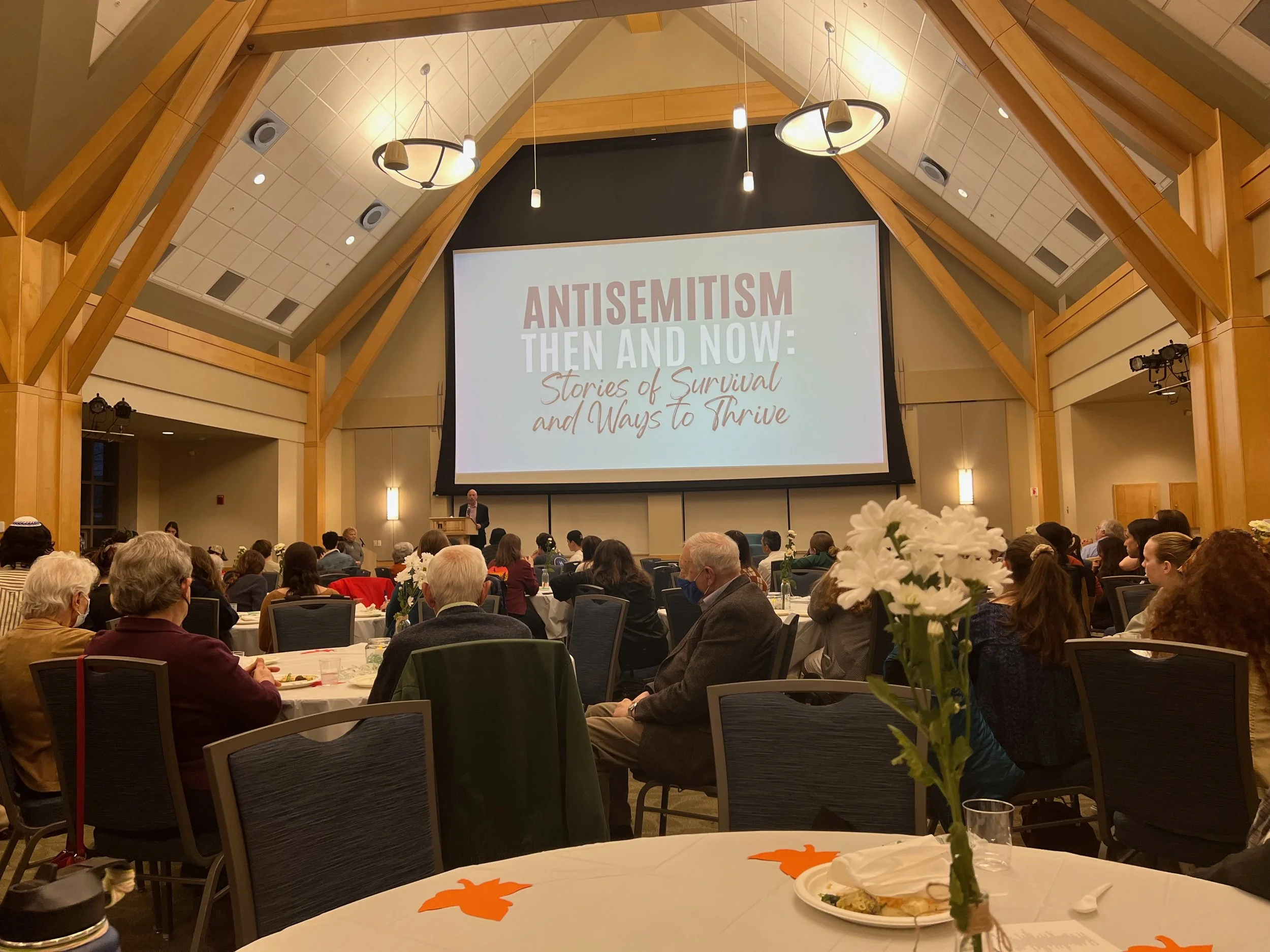Elisha Wiesel speaks on antisemitism at UVM during panel
Elisha Wiesel, son of famed Holocaust survivor Elie Wiesel, says the University of Vermont had the most antisemitic incidents of any college in America last year.
But that’s not exactly why he felt compelled to speak at a panel event examining dynamics with the Jewish community and opinions toward Israel on campus last week.
“I’m not here tonight because of the antisemitism that has confronted us; I am here because brave Jewish people — adults, students, people connected to campus and not — came together last fall and fought against the BDS revolution that was taking place,” Wiesel said, referring to a movement that advocates for boycotts, divestments and sanctions against Israel in protest of its treatment of Palestinians.
Wiesel said he was inspired and moved by the work of Jewish students at UVM.
His claim about antisemtic incidents comes from a student-group report published in February that collected anecdotal reports from college students around the country. According to the Forward, “More than half of the reports (included) demonization of Israel, condoning terrorism against Jews or Israelis and denying self-determination … Researchers defined ‘denying self-determination’ as ‘denying Israel the right to exist, denying Jewish people the right to reside in Israel’ and ‘denying Jewish people the right to self-govern in Israel.’”
The gala, put on by UVM Chabad, UVM Program Board and UVM Hillel and catered by Vermont Kosher, was scheduled to celebrate Yom Hashoah or Holocaust Remembrance Day. The event started with a moment of silence followed by a Yiddish recitation of the Mourner’s Kaddish, a Jewish prayer spoken collectively to remember the dead. Cards on tables provided an English translation.
Wiesel took the stage aiming to answer four questions: “Why am I here, who was my father, why do they hate us so much and what do we do about it?”
The first two questions were easily answered: He came to the gala because of respect for the Jewish community at UVM, and his father was Elie Wiesel, a Holocaust survivor who won the Nobel Peace Prize for his humanitarian work and did it as a “proud Jew who wanted to be remembered as a good Jew.”
The next two proved tougher. Wiesel argued antisemitism from both the far-right and the far-left are equally concerning. He said many civil rights movement lawyers were Jewish, and far-right Christians hate them for helping erode their oppressive power. He said the Israel-Palestine conflict has made people on the far-left hate Jews living countries away from Israel uninvolved with the conflict.
So, what do we do about it? he asked.
Wiesel argued that the only thing to do is stand up for human rights of Jews but also to continue to stand up for other marginalized groups. Wiesel believes he can be pro-Israel and pro-Palestinian and said he won’t be told what he can and can’t do as an activist.
After the talk Wiesel took questions from the audience, in which he emphasized the importance of knowing Jewish history over strictly practicing Judaism and said the most important thing in Jewish practice is to practice with joy.
Henia Lewin, a Holocaust survivor more descriptively known as a “hidden child,” took the stage as well.
Lewin was only 1 ½ years old when the Holocaust began. Her parents smuggled her out of their ghetto in Lithuania to the open part of their city to live with a non-Jewish family friend as his third daughter until it was safe to be together. Her parents survived the Holocaust by escaping the ghetto and hiding in the countryside. Eventually, the family reunited.
In adulthood, Lewin moved to South Burlington and raised two children there. She has a master’s degree in education from UVM and was the director of Hillel and a professor. Now retired, she continues advocacy work as one of the few Holocaust survivors still living today.
Her biggest message? Bystanders, who she is almost as angry with as the perpetrators of the Holocaust, must become activists when they see injustices. That way, she said, a Holocaust never happens again.
Guests were asked to write something they learned or felt from the talks on paper leaves, to be hung up on two large tree posters for the Vermont Holocaust Memorial.
The event proved positive for Jewish students in attendance, who have been struggling to come to terms with their opinions on the Israel-Palestine conflict.
“Wiesel is so well spoken, and I haven’t been surrounded by such a large community (of Jews) in my lifetime,” said senior Katie Hollenberg. “The massive support from this event helps me feel empowered. It’s hard to choose in Israeli conflict: I have Palestinian and Muslim friends who post and I don’t know where to turn. The presentation saying to take a stand against misconceptions and rumors really stood out to me. I have to make my own decisions.”
Fellow senior Eliana Gilfix agreed.
“It’s hard as a Jewish person on campus during protests on Israel, and it’s hard to form an opinion,” Gilfix said. “Coming here to be surrounded by Jews and allies shows we aren’t alone and people are fighting for the same thing I am. Above all, we need to stand up for human rights.”








